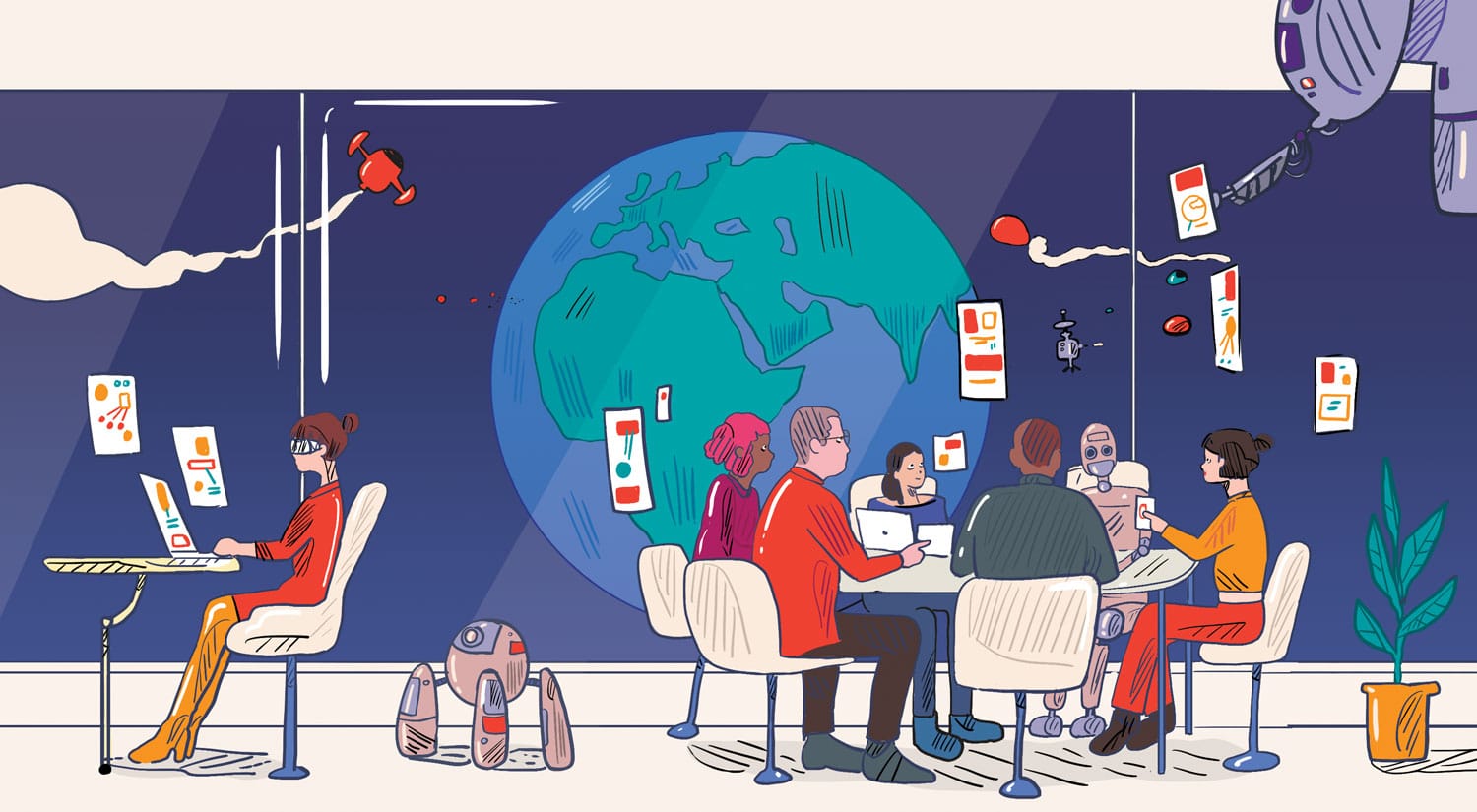Do Global Brands Have the Power to Change the World?

Stephan Loerke, CEO of the World Federation of Advertisers (WFA), looks at the current challenges facing the industry – climate emergency, social responsibility, data, measurement, brand safety – and offers insights on how to respond to them.
What are the current challenges facing the market?
As we look towards 2022 and the end of this lockdown period, the industry is facing a period of change and a number of real challenges. The mother of all issues is, of course, climate change – the single most important concern that affects everyone in the world. The marketing industry, both globally and locally, must respond positive, forward-facing, and responsible. Our industry also is lagging when it comes to the subject of diversity and inclusion. This is a topic we need to be committed to, especially now that there is much greater pressure from consumers for brands to ‘do better’. Another issue is brand safety, in particular online brand safety. As an increasing proportion of ad-spend is on digital, brands must ensure we are not unintentionally supporting harmful content, whether it’s racist, induces violence or contains misinformation.
Data ethics is equally important. It requires going beyond merely complying with data protection legislation and establishing a clear framework and values that foster an environment of trust so we can make informed decisions about how data is used. In order to adapt with the changing media landscape, we also need to prioritise the reimagination and renewal of cross-media measurement allowing brands to consciously make choices regarding where they invest their money and how they connect with people. Finally, following big changes regarding cookie policies (e.g., Apple’s implementation of IOS.14 which requires customer consent to track across sites and apps, we need to reinvent the way in which we connect online. This long list of priorities reflects the extent to which we need to completely reshape the industry coming out of the Covid-19 crisis.

WE NEED TO COMPLETELYRESHAPE THE INDUSTRY COMING OUT OF THE COVID-19 CRISIS CHANGE-MAKERS
How can brands transform their industries to align with these priorities?
As already mentioned, the biggest priority right now is tackling climate change. The upcoming COP 26 summit that will be held in Glasgow in November will look at ensuring continued commitment to the Paris Agreement, signed in 2015. There are concrete goals including: ensuring that brands are carbon neutral by 2050 and have halved their emissions by 2030. However, at WFA we want to lead the conversation and to do this we need Chief Marketing Officers who will champion the issue internally and create change within their companies.
In April this year, the WFA launched its ‘Planet Pledge’, building on a commitment to meet the UN’s Climate Convention objectives and encouraging partners across the supply chain to do the same. This initiative offers policy guidance to avoid greenwashing and encourages an upskilling of marketing teams to ensure they can effectively encourage consumers to change their habits. It is crucial that brands take the lead on climate change and make real commitments towards carbon neutrality and ethical practices. I believe marketing can really accelerate change and be actors of change for good. We have already seen a lot of positive initiatives from brands who have realized there’s a very close deadline before it’s too late to act. For instance, Ikea is fully integrating a circular economy into its model and L’Oréal has signed the Planet Pledge. When big players act, it puts pressure on others and that can really lead to a positive snowball effect. But it needs to happen now, in every industry.
IT IS CRUCIAL THAT BRANDS TAKE THE LEAD ON CLIMATE CHANGE
How have marketing and communications strategies evolved during Covid-19 and how will they continue to evolve?
The outbreak of Covid-19 was a completely unpredicted and disruptive event and brands had to completely reposition their products, their marketing communications, and their brand image to reflect consumer needs. Numerous brands have been able to connect with consumers in a helpful and supportive way.
I think this ‘consumercentricism’ will continue as we move out of the pandemic and begin tackling the aforementioned issues.
Support for these social issues is not universal across all brands and regions. How will brands with a global audience deal with this?
Working out the right formula has always been difficult for global brands. On the one hand, they have to represent global values and purposes, yet on the other hand, they operate across hundreds of countries with enormous cultural differences and unique socio-economic contexts.
The pandemic has demonstrated the fact that there is no such thing as a ‘global consumer’ and for brands to stay relevant, they need to recognise the nuances between individual consumers. Global brands need to find the fine balance between remaining close to the local reality whilst maintaining true to their global image.
What role does the WFA play in ensuring brand safety in this media landscape?
Brand safety is a crucial topic for brand owners as where a brand appears online reveals a lot about its values and affect how they are perceived. Thus, if a brand is in any way associated with harmful or violent content, it can have a devastating impact on its integrity and reputation.
The current shift of ad-spend to digital has not been matched with the required accountability to protect brands and society at large. Two years ago, we created the Global Alliance for Responsible Media, bringing together all the stakeholders in the industry to build the foundations for a more secure ecosystem. Some of the actions that have been taken include creating standard definitions for ‘harmful content’ and agreeing on common metrics to report on harmful content. We have already had confirmation from the three main platforms (Google, Facebook and Twitter) that they have either completed or begun a third-party audit of their processes.
This protects brands integrity but equally society as a whole.
What will a cookie-less world look like? What will the challenges and opportunities around data be?
Getting rid of third-party cookies will completely shake up the industry and redistribute the cards. Google initially planned to implement a no-cookie policy in 2021, but this decision has been pushed back to 2023. There are alternatives to third-party cookies in the works such as FLoC, proposed by Google. FLoC provides a privacy-preserving mechanism for interest-based advertising. There is also PRAM, a cross-industry effort to build an addressable media identifier, which would allow brands to collect opt-ins from individuals, in order to serve them relevant ads.
Many brands in the WFA are pivoting towards a first-party data strategy which would allow them to connect directly with consumers to get their consent. There is a wide selection of future possible alternatives, and my prediction is that we will see a combination of all these options come into play in the near future.
How far along are we when it comes to cross-media measurement?
Progress is being made, but it is a highly ambitious project to create a new system adjacent to that of individual media measurement. There is momentum behind a blueprint that was published a year ago and provides a technical solution available to all to consult and comment on.
We are currently working with our UK (ISBA) and US (ANA) national associations. Both are working on pilot projects which we hope will be launched in the next six to 12 months. The long-term plan is to enable global measurement and insights on a global scale.
Will global brands change the world?
Brands alone do not have the power to change the world, but they do have the power to be an influential driver in initiating the change we need. The media plays a key role in raising awareness and an informed public, who are ready to mobilise and embrace change are the final piece in the puzzle. We are at a turning point and if brands are prepared to step up and use their drive, creativity, and ability to connect with people we will see hugely positive changes.
Stephan Loerke, CEO at World Federation of Advertisers (WFA)